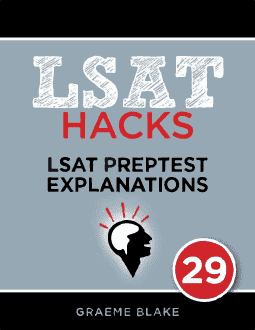QUESTION TEXT: Linda says that, as a scientist, she knows that no…
QUESTION TYPE: Flawed Parallel Reasoning
CONCLUSION: At least some people who appreciate poetry are illogical.
REASONING: Most scientists are logical and Linda says no scientists appreciate poetry.
ANALYSIS: Linda is a very illogical scientist. She notes that logical scientists don’t like poetry.
But that doesn’t mean that at least some people who do like poetry are illogical. Linda makes a bad argument.
It’s like saying that because children are not ten feet tall then at least some people who are not children are ten feet tall.
Another element is that Linda claims no scientist likes poetry. But that’s a very strong claim and Linda provides no evidence apart from being a scientist. Being a scientist doesn’t make her an expert on who likes poetry.
A relevant expert is someone who has studied a particular area. They can be expected to speak about it competently.
___________
- This is a good argument. Ralph is a relevant expert and can be expected to know if marsupials lay eggs.
- CORRECT. This argument sounds so good…but it’s wrong. First, Franz can’t speak for all fathers: he isn’t an expert on what all fathers think. Maybe some want their kids to eat candy at bedtime. And Franz also hasn’t given us any evidence that children are demanding candy.
- This is a good argument. Yuri is a relevant expert.
- Xi is a relevant expert and makes a good argument.
- This is very close. Betty can’t speak for all corporate executives. But the conclusion is different. The stimulus went from logical to illogical. Betty keeps the terms the same; she goes from honest to honest.


Can you clarify why E is wrong? I had trouble with this one.
The final premise and conclusion of the stimulus are as follows:
Premise: Scientist MOST Logical
Conclusion: Appreciate poetry SOME Illogical
Notice how the conclusion negates the premise’s adjective “logical” to “illogical”.
(E) says:
Premise: Corporate Exec MOST Honest
Conclusion: Pay taxes SOME Honest
Notice how in this case, the premise’s adjective “honest” is not negated in the conclusion, but stays the same.
So (E) doesn’t entirely match the reasoning in the stimulus.